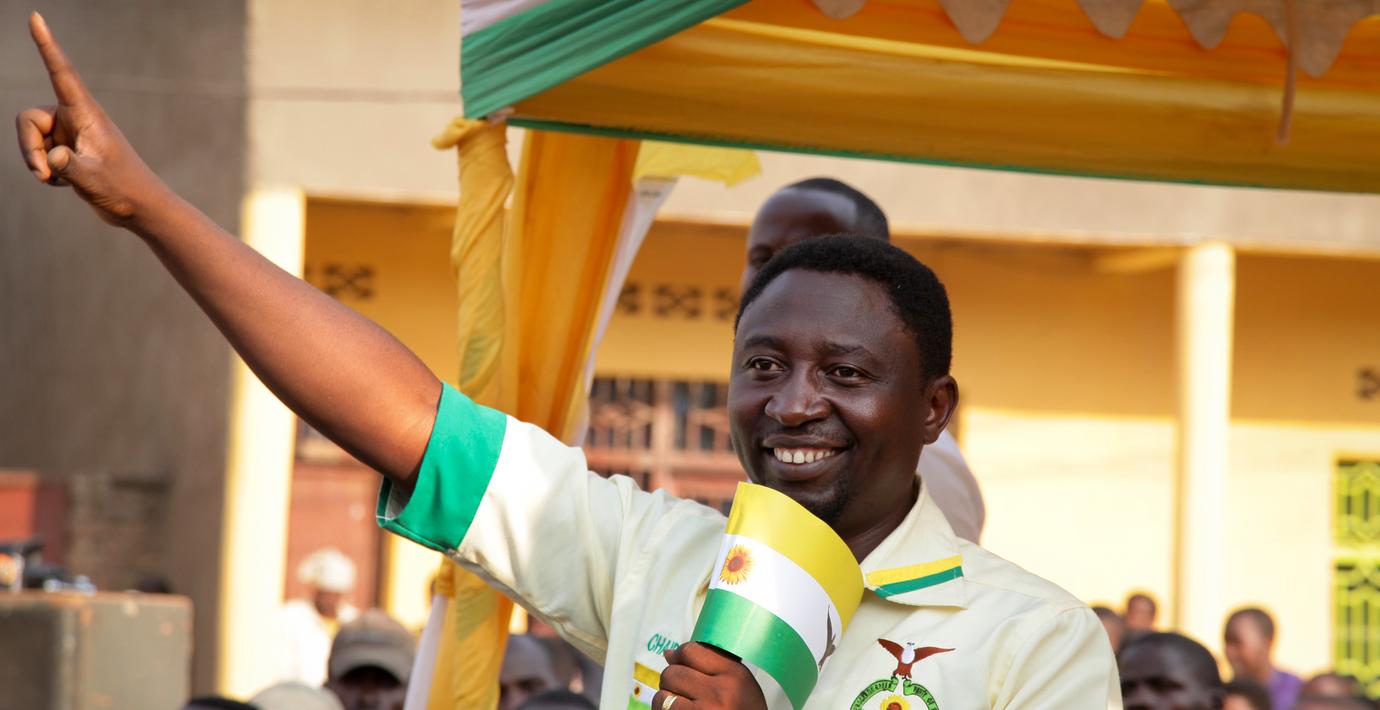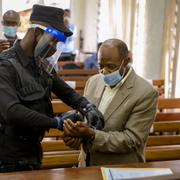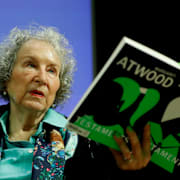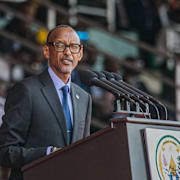Wikipedia (en)
Rwanda ( or ( listen); Kinyarwanda: U Rwanda [u.ɾɡwanda]), officially the Republic of Rwanda (Kinyarwanda: Repubulika y'u Rwanda; French: République du Rwanda), is a sovereign state in Central and East Africa and one of the smallest countries on the African mainland. Located a few degrees south of the Equator, Rwanda is bordered by Uganda, Tanzania, Burundi and the Democratic Republic of the Congo. Rwanda is in the African Great Lakes region and is highly elevated; its geography is dominated by mountains in the west and savanna to the east, with numerous lakes throughout the country. The climate is temperate to subtropical, with two rainy seasons and two dry seasons each year.
The population is young and predominantly rural, with a density among the highest in Africa. Rwandans are drawn from just one cultural and linguistic group, the Banyarwanda, although within this group there are three subgroups: the Hutu, Tutsi and Twa. The Twa are a forest-dwelling pygmy people descended from Rwanda's earliest inhabitants. Scholars disagree on the origins of and differences between the Hutu and Tutsi; some believe differences are derived from former social castes within a single people, while others believe the Hutu and Tutsi arrived in the country separately, and from different locations. Christianity is the largest religion in the country; the principal language is Kinyarwanda, spoken by most Rwandans, with English and French serving as official languages. Rwanda has a presidential system of government. The president is Paul Kagame of the Rwandan Patriotic Front (RPF), who took office in 2000. Rwanda today has low corruption compared with neighbouring countries, although human rights organisations report suppression of opposition groups, intimidation and restrictions on freedom of speech. The country has been governed by an ordered administrative hierarchy since pre-colonial times; there are five provinces delineated by borders drawn in 2006. Rwanda is one of only two countries with a female majority in the national parliament.
Hunter gatherers settled the territory in the stone and iron ages, followed later by Bantu peoples. The population coalesced first into clans and then into kingdoms. The Kingdom of Rwanda dominated from the mid-18th century, with the Tutsi kings conquering others militarily, centralising power and later enacting anti-Hutu policies. Germany colonised Rwanda in 1884 as part of German East Africa, followed by Belgium, which invaded in 1916 during the First World War. Both European nations ruled through the kings and perpetuated a pro-Tutsi policy. The Hutu population revolted in 1959. They massacred numerous Tutsi and ultimately established an independent, Hutu-dominated state in 1962. The Tutsi-led Rwandan Patriotic Front launched a civil war in 1990. Social tensions erupted in the 1994 genocide, in which Hutu extremists killed an estimated 500,000 to 1.3 million Tutsi and moderate Hutu. The RPF ended the genocide with a military victory.
Rwanda's economy suffered heavily during the 1994 Rwandan Genocide, but has since strengthened. The economy is based mostly on subsistence agriculture. Coffee and tea are the major cash crops for export. Tourism is a fast-growing sector and is now the country's leading foreign exchange earner. Rwanda is one of only two countries in which mountain gorillas can be visited safely, and visitors pay for gorilla tracking permits. Music and dance are an integral part of Rwandan culture, particularly drums and the highly choreographed intore dance. Traditional arts and crafts are produced throughout the country.




